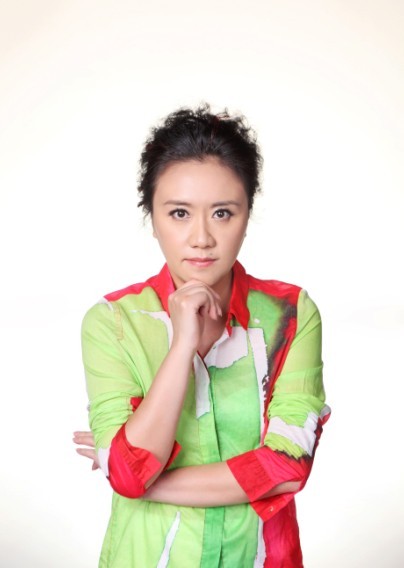

|

Wang Chaoge has her sights set on taking her shows overseas to promote Chinese culture. Provided to China Daily |
Theater director Wang Chaoge is excited about the potential of China's culture industry. The 48-year-old CEO of Beijing Impression Show Co Ltd believes Chinese companies can successfully expand overseas and develop into large international brands similar to what Disney has achieved.
Unlike many of her peers in the artistic community, Wang is equally interested in pursuing both art and business.
"In China, there is a popular belief that there exist conflicts between the arts and business, which means that a good artist cannot be a good businessman. For me this mindset is unreasonable and the two are complementary to each other's development. This is why I am both artist and businesswoman, always switching mode between financial sheets and artistic creation," says Wang, who co-directed the opening ceremony to the Beijing 2008 Olympic Games with Zhang Yimou and Fan Yue.
That team, dubbed "the golden triangle of directors", has worked together on seven open-air shows since 2003.
Their most recent show is called Seeing Pingyao Again, which focuses on the culture of Pingyao county in Shanxi province.
"The natural environment, including mountains, rivers and trees, is what inspires us to do these live shows," says Wang. "From Lijiang River and Yulong Snow Mountain, to West Lake and Hainan's seashore, whenever we settle on a site, we hope to make full use of its scenic landscape.
"We live in a time of visual art. Avatar has shown how magical visual techniques can be. We follow that trend, blending the movies into our live shows through technology to create a dreamy fairytale."
Wang has been impressed by the passion of performers used in the shows.
"On average more than 70 percent of actors in the shows have been local villagers," she says. "Some of them can't speak standard Mandarin and some are very new to the stage, but their natural acting ability makes up for this."
Each show offers insight into aspects of local culture with the aim of promoting it to the outside world. Impression Dahongpao, for example, is named after a precious tea that has been grown for centuries on the Wuyi Mountains in Fujian province, a UNESCO World Heritage site.
"We wish to turn the performance into a real-life museum, which provides a stage for local folk culture to be exhibited and promoted," she says.
More than 2 million people have watched the shows across China to date.
Wang now has her sights set on taking the shows overseas to promote Chinese culture.
"The shows are vivid and true reflections of Chinese culture and Chinese people's life," she says. "If they can be introduced to foreign nations, it will be beneficial for Chinese culture."
Wang believes China's cultural industry is a long way behind that of the West, but has developed rapidly in recent years. One issue it faces is that the Chinese public is not accustomed to spending much money on cultural pursuits, she says.
"Generally speaking, people in developed nations spend about 20 percent of their income in the culture industry," she says. "But in China, people are more likely to spend their money on buying more material things like apartments."
As living standards have improved spending on culture has risen but the industry could do with greater government support, she adds.
The firm aims to develop into a more complete business, according to Wang.
"Some Western cultural companies, such as Disney, make profits not only through their films or dramas, but also by some derivative products," she says.
The company has already begun this process, selling local tea and cultural gifts associated with the Impression Dahongpao show.
"Based on the huge domestic market and potential for China's cultural industry overseas, with our perfect combination of art and business skills I believe the Impression shows will become a world-renowned label like Disney," says Wang.
huhaiyan@chinadaily.com.cn